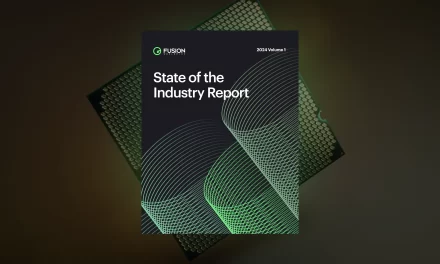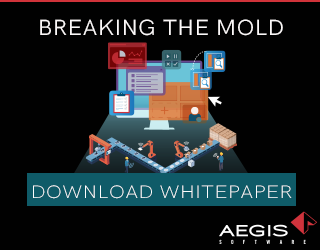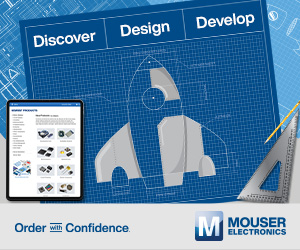10 Key Questions Every Startup Should Ask a New Potential China Supplier
By Howell Wang, Insight Solutions

Insight Solutions has helped over 120 US and European startups find and evaluate new suppliers, through our extensive experience we have developed a series of ten key questions every startup must think about and ask when selecting their suppliers.
- How much does this new manufacturer know about your business and why do they want to work with you?
This question can help you to determine why they are interested in working with you.
If the supplier has done its homework about your business, they will be able to explain in detail why you are good fit working with their organization. We encourage to ask more in-depth questions to verify their true understanding of your business – How many small customers have they worked with over the past 3 years? What’s the average revenue and longevity engagement with these small customers? What similar product/project have your worked with? etc. Gain a basic understanding of their strengths to see if they bring the skills and experience to your business.
- How do you allocate resources to projects?
During your initial meeting, you may meet many good project team members and see a lot of good machines and learn about the company’s mature manufacturing processes. You are very excited and think they can do almost everything for you. However, you need to know the company’s internal resources allocation strategy clearly; without this understanding, you may become frustrated when you don’t get the support needed. So, how should you verify future resources support? Simple questions may help you get started – what is your capabilities in terms of xx, will they be used in my project? How many resources are employed to different projects? How large are the annual sales of your top 5 clients? Be direct, get all the information you need up front, and never assume anything. Always ask questions to determine how important a client you will be to this supplier.
- How do you manage new product projects in terms of design and engineering support?
You have developed a cool product and time to market is crucial to your success. When you select suppliers, verify the supplier has an experienced team, a mature NPD process and systems in place to give you the necessary new production introduction (NPI) support. Ask what lessons they have learned from past work and what will be the specific NPI support solution for your projects.
75% of the projects from Kickstarter failed to meet the first shipment date and part of reason was they worked with an inexperienced supplier.
- May I visit a few of your critical component suppliers?
Selecting a right contract manufacturer is not the final step for supplier selection. Rather than relying on a contract manufacturer to do everything, it is very important for you to visit a few key component suppliers to understand their capabilities and relationship with the contract manufacturer. If your contract manufacturer won’t allow you to meet with their key suppliers, you need to re-consider working with them. It’s important for you to have full visibility into your supply chain.
- Will you be transparent about all costs?
Everybody likes to receive good pricing but some suppliers may increase their pricing or add extra costs after you engage with them. That may be reasonable if there were major changes in design – what’s been quoted on at the beginning is quite different from the one which is finally manufactured. However, with an open BOM (Bill of Materials) you are in better position to have the supplier justify the cost increases.
Sometimes, suppliers tend not to be transparent about the cost breakdown. They either want to hide some margin, or they don’t yet trust you. Nevertheless, it’s not recommended to rely on suppliers who are not willing to provide a breakdown of their BOM.
- What’s the most difficult quality issues you ever solved for a start-up?
Suppliers always say they have high quality standards and manage their quality control effectively. In order to verify how they manage their quality issues, request an example of a difficult quality issues they ever solved. Evaluate what they did with what process and tools were used, who was in charge and ultimately what were the results? It would be most efficient that you or your quality team meet directly with the team who was responsible for that case. That will help you to find out if their quality management system and personnel are professional and consistent.
- Can you propose a project schedule?
Project schedules are a critical part for every business, we can see most of the hardware startups delayed the whole project schedule than their projection due to lack of suppliers’ professional input. By walking through their whole schedule proposal, you can verify if the suppliers can help you to anticipate technical and supply chain risks and if they are experienced on mitigating these risks.
- How do you protect customers’ IP (Intellectual Property)?
There are thousands of companies that outsource their manufacturing to China. The benefits in terms of price alone can be substantial. However, IP protection must be taken into account whenever you turn your IP over to any manufacturing partner, no matter where they are located. Signing a Non-Disclosure-Agreement (NDA) is necessary but not likely enough to completely protect you and your IP. It is always important to verify the integrity of a future manufacturing partner in a number of different ways. Ask detailed questions on how they protect their clients IP. Ask to speak with current and past customers to see how their IP was protected. Ask to see if they have solid policies, processes, and systems in place to support IP protection.
- How can I get net 60 days payment term?
Negotiating terms as a new client is always difficult. Both parties are new to each other. The best way to initiate the process is to first provide the new supplier with sufficient financial background information from you. Ask about their internal payment terms, credit line policy and approval process. Understand what you can do to achieve better payment terms step by step. This will also help you to do the cash projection more accurately.
- Do you or your sub-suppliers have plans to move production to low-cost region?
Some manufacturing suppliers for products such as cables, batteries, plastic injection, metal, etc. are planning to move their mass production to inland China provinces, or to lower cost countries to reduce their labor and facility cost. The facility and production transfer generally takes 8 months to 1 year. Sometimes your contract manufacturer will remain in China but their sub-suppliers relocate to a lower cost region. You need to ensure a healthy and secure supply chain network and verify all these details before signing an agreement with contract manufacturer.
Manufacturing products for the hardware industry is difficult, but especially so for startups. You may lack direct connectivity to offshore manufacturing suppliers and have limited experience on the “when” and “how” to successfully scale-up production of physical product solutions; that’s why it’s important to understand and manage suppliers effectively. With above ten questions, you have a good start at finding a manufacturing partner that can help in your success.















